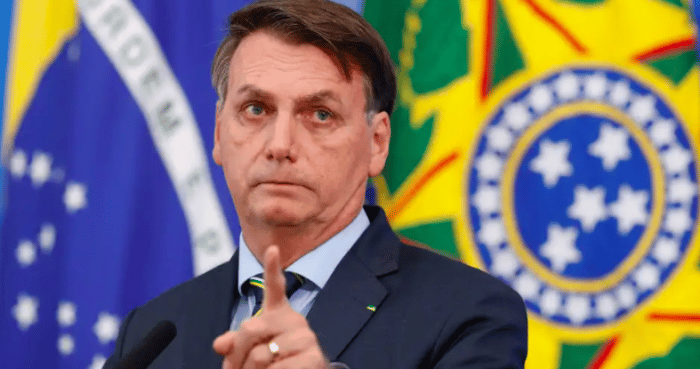
Peru is experiencing a delicate institutional crisis. In Argentina, we saw the assassination attempt of its vice-president Cristina Fernandez. Ecuador is experiencing the violence of organized crime. And in Brazil, citizens are getting ready to elect their new president, amid unfounded accusations of electoral fraud by the current president, Jair Bolsonaro. Each country lives its realities, but we have the opportunity to act together to face common problems, such as the advance of drug trafficking and corruption, to reflect and agree on actions to strengthen a region in upheaval, and to restore lost trust, where government transparency, citizen participation and dialogue increase, and where values such as tolerance, ethics, responsibility and respect for human rights are promoted. The challenge is everyones.
After years of dictatorships, Latin America advanced toward democratic systems, creating institutions of control and strengthening its rights, laws, and institutions. However, those advances have been weakening and today we see how various conflicts are shaking what we have worked so hard to build.
Different regimes coexist in the region. There are democratic ones -some more developed than others-, hybrids, and autocratic ones, and in all of them, there is a certain weakness. While in some countries their leaders are empowered, exercising supernatural control over their inhabitants and institutions, in others their citizens are empowered, protesting and demanding change. In all of them, there is a certain instability and uncertainty, also influenced by a global crisis, where pandemics, inflation, war conflicts, migratory crises, and the increase in drug trafficking and organized crime, to name a few of the issues of global concern, stand out.
And it is precisely in these moments of crisis when the authorities need to channel destinies toward the common good, but, on the contrary, many of them are accentuating the fragility of the system. Examples abound and each country is facing the consequences of this weakness.
Chile, in the aftermath of a social outbreak, has known uncertainty. Although a transversal agreement to write a new Constitution was the first step to trying to solve the crisis, the process is still ongoing after the rejection of the proposed constitutional text, and it is expected that the political forces will reach agreements that give more certainty of what is expected for the country.
In Brazil, citizens are getting ready to elect their new president, amid unfounded early accusations of electoral fraud by the current president, Jair Bolsonaro, seeking to question the results in case he loses.
Meanwhile, in Peru, there is a delicate institutional crisis, with its maximum leader, President Pedro Castillo, facing six investigations for corruption, in which former and current ministers and even his wife and sister-in-law are allegedly involved, and where the president of the Congress was dismissed after being accused of agreeing on laws with her party. Added to this is the instability that prevails, wherein only one year in office there have been 68 changes of ministers in the 19 government secretariats.
And in Argentina, we saw the assassination of its vice-president Cristina Fernández, who is facing a trial for corruption in the awarding of public works, and for whom the prosecution is asking for twelve years of imprisonment and life disqualification. The prosecutor in charge, Diego Luciani, said that it was “the biggest corruption scheme ever known in the country”, while the former president accuses of political persecution, indicating that this “is a trial of Peronism”, and Latin American presidents express their support without waiting for the judicial resolution. As if that were not enough, the current president, Alberto Fernández, further divided the waters with an intimidating phrase against the prosecutor: “Nisman committed suicide. I hope prosecutor Luciani does not do something similar”.
Ecuador is experiencing the violence of organized crime, which has reached alarming levels, with an increase in homicides and drug trafficking; in Panama, a dialogue table is being held after a social outbreak, which has not yet reached agreements; in Nicaragua, there is a persecution against those who dissent from Daniel Ortega’s regime, with journalists and even media outlets that have left the country, and against the Catholic Church; The same is happening in Guatemala, where cases of harassment of the press have increased; in El Salvador, President Nayib Bukele holds more and more power; and in Paraguay, Vice President Hugo Velázquez, as well as former President Horacio Cartes, have been identified as “significantly corrupt” by the United States, which has caused a shake-up in the government.
All this is just a glimpse of what is happening in Latin America and how institutions have been weakened and, with them, democracy. For the same reason, it is now when we must protect it, and this is not only the responsibility of the authorities but also of each of its citizens. We cannot be scandalized when the facts are carried out by the opposite side and defend them if they are carried out by our friends. To protect democracy is to have a broad and critical view of what is good or bad for our country and its people, and not to the extent of what is convenient for us.
When authorities accused of political persecution when being investigated, they only deepen the institutional crisis in the region, polarize their respective countries, and call into question bodies as important for democracy, such as the Judiciary; as make the accusations of anticipated fraud in Brazil, which only call into question the electoral systems.
Each country lives its realities, but we have the opportunity to act together to face common problems, such as the advance of drug trafficking and corruption, to reflect and agree on actions to strengthen a region in upheaval, and to restore lost confidence, where government transparency, citizen participation and dialogue increase, and where values such as tolerance, ethics, responsibility and respect for human rights are promoted. The challenge is everyones.
By Susana Sierra in El Mostrador
Image: El Mostrador










